LiA Reflections: Bringing Digital Skills to Rural Communities in Nepal
In today’s world, digital literacy is more important than ever. Yet for many children in rural parts of Nepal, access to computers and the internet remains extremely limited. Over the past summer, I had the opportunity to work with Engineers Without Borders Nepal (EWBN) and Engineers Without Borders Switzerland (IngOG+) on a project aimed at changing this situation.
The project took place in Dhading, a district northwest of Kathmandu, where we worked with two schools: Eternal Hope Nepal Dhading (EHN) and Swabalambi Basic School of the Deaf. Our mission was twofold: to provide computer training to underprivileged students and to gather insights for future development projects. What began as a pilot quickly became a meaningful exchange of skills, culture, and lifelong connections.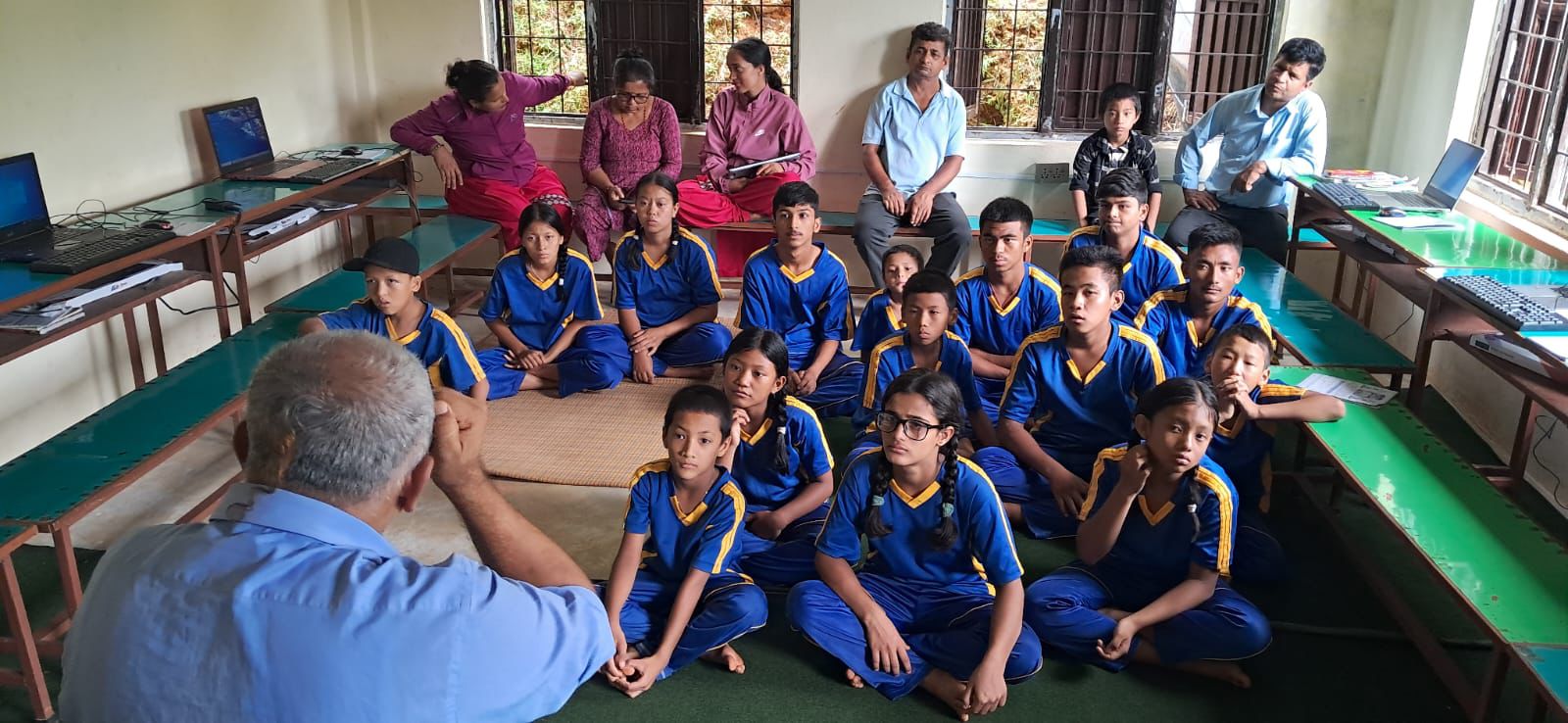
Teaching Digital Literacy
At EHN, students had already received basic training from their dedicated computer teacher, Yash Kumar Praja. He had taught them everything he knew: Microsoft Office, internet basics, and essential computer functions. Our role was to take things further.
For one week, nineteen students joined us every morning at 5 a.m., before their regular school day, to learn advanced skills. Together, we explored tools like Google Workspace, creative design with Canva, AI platforms, and online collaboration methods. Despite the early hours, their energy and enthusiasm was remarkable. Watching them create their first digital presentations or experiment with design software reminded us how transformative access to the right tools can be.
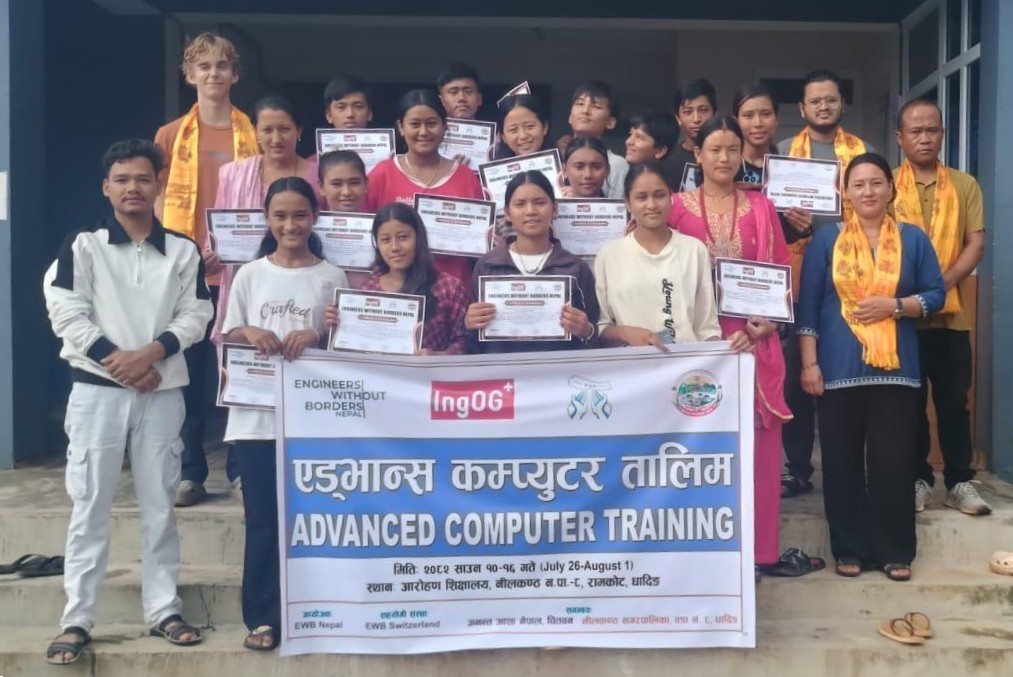
At the deaf school, the challenge was different. Many of the students were touching a computer for the first time. We began with the basics, turning on a laptop, typing, navigating folders, before moving to creative design and even video editing. Communication was a major hurdle, but with the help of teachers, basic sign language, and lots of patience, we built a learning environment that was both inclusive and empowering. Just as importantly, we trained the teachers to continue supporting the students after our departure, ensuring that this was not a one-time opportunity but the start of something sustainable.
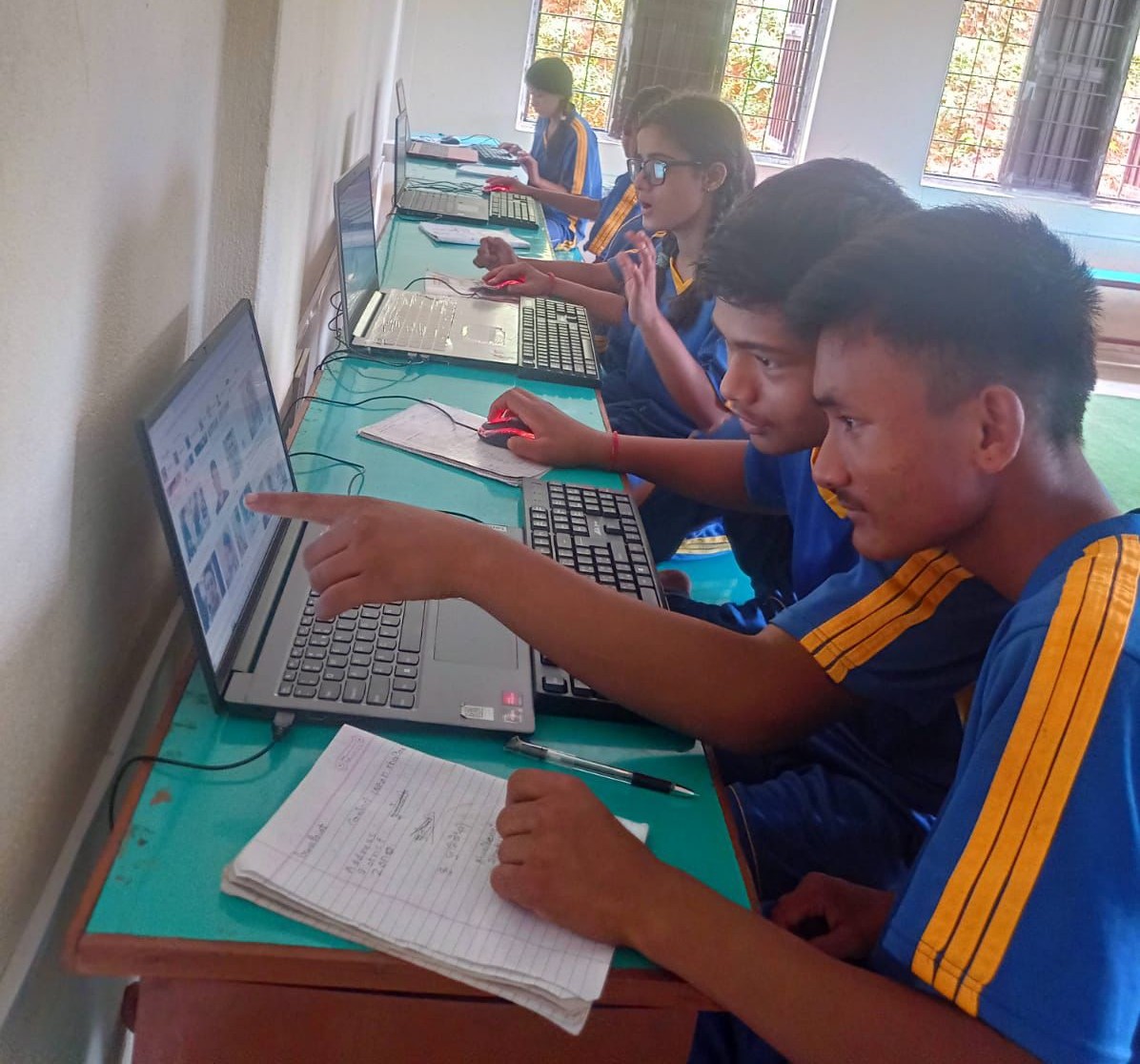
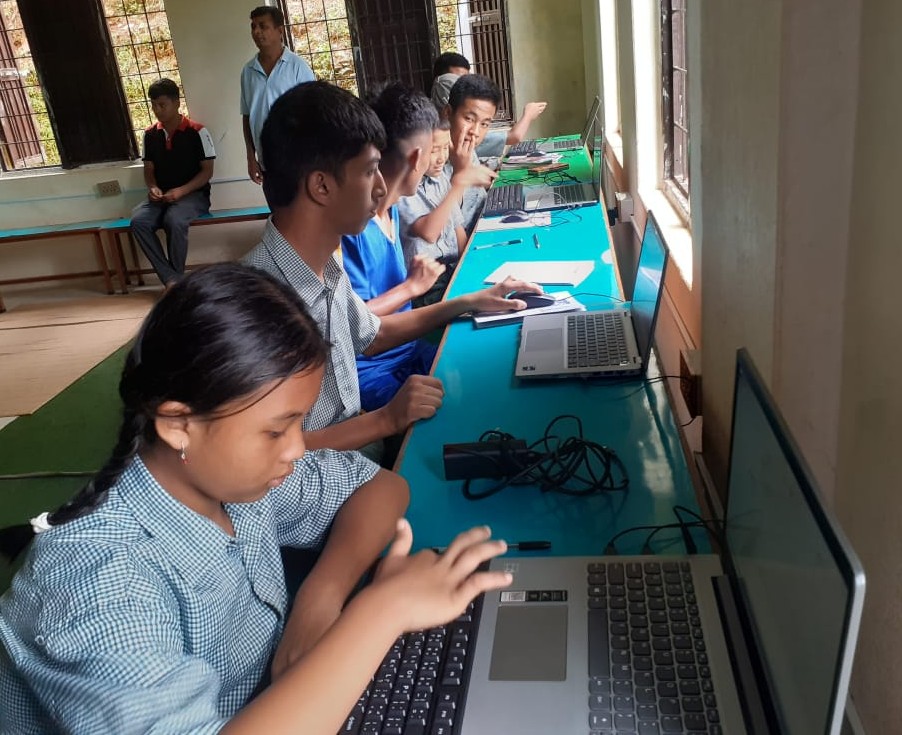
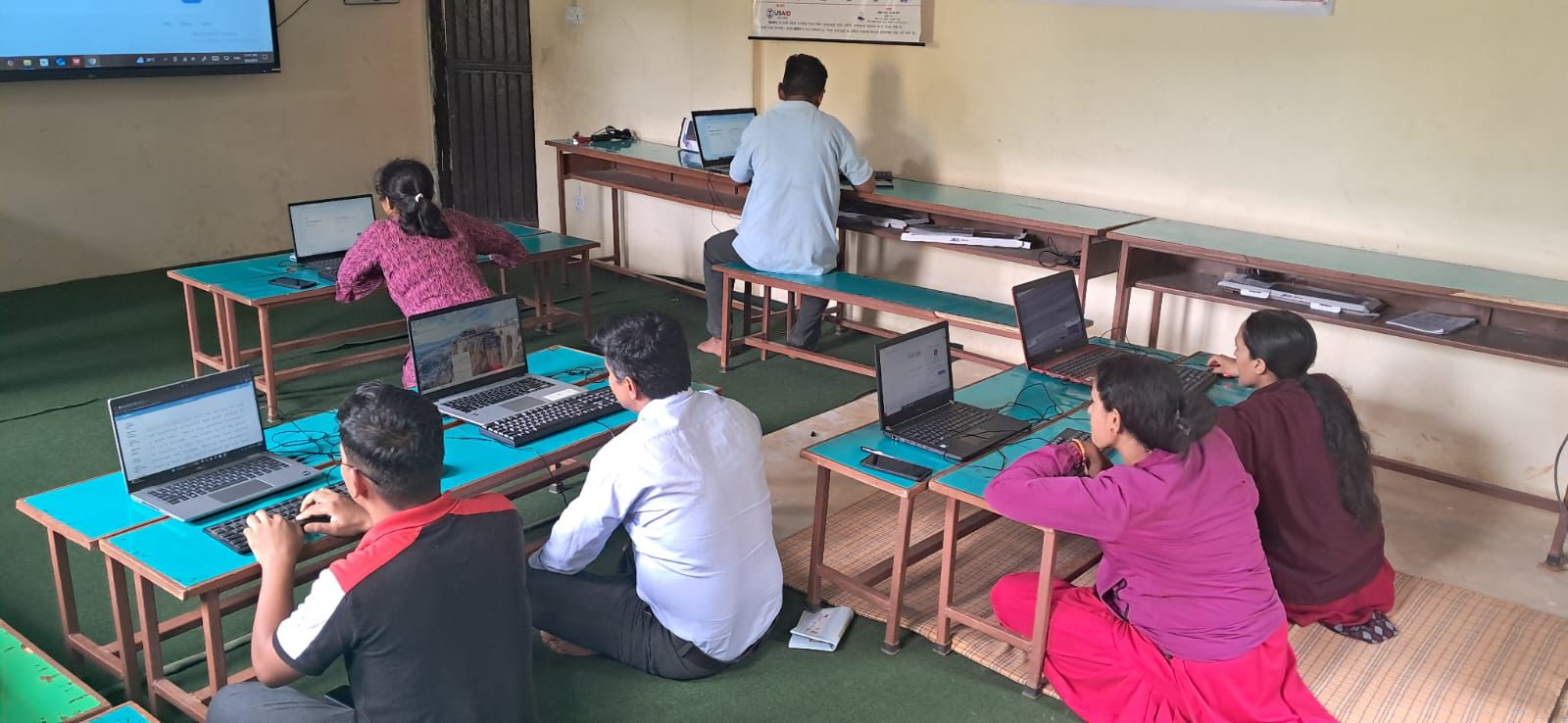
Beyond the Classroom
While teaching was central, the project extended far beyond computer labs. Working closely with IngOG+, we documented the community’s needs in areas such as water, electricity, and infrastructure.
At Swabalambi Basic School of the Deaf, we organized the installation of a lightning protection system. Repeated lightning strikes had destroyed electronic equipment, including the school’s power inverters, which allowed the school to get electricity from batteries during the frequent power outages. By installing a proper earthing system, we not only protected the building but also created a replicable model for other schools in similar regions.
We also supported the expansion of the school’s water system, increasing storage capacity from 3,000 liters to 13,000 liters, eliminating water shortage issues during the dry season.
By working together with the school staff and local tradespeople, we were able to solve so many problems, solving urgent issues that the school was facing.
Reflections
The project was not without its challenges. Language barriers were constant, especially at the deaf school where Nepali sign language was the primary mode of communication. With the help of the headmaster’s family and supportive volunteers, I learned enough sign language to teach effectively. By the end of two weeks, we were able to cover even complex topics like video editing, a surprise that showed the power of persistence and adaptation.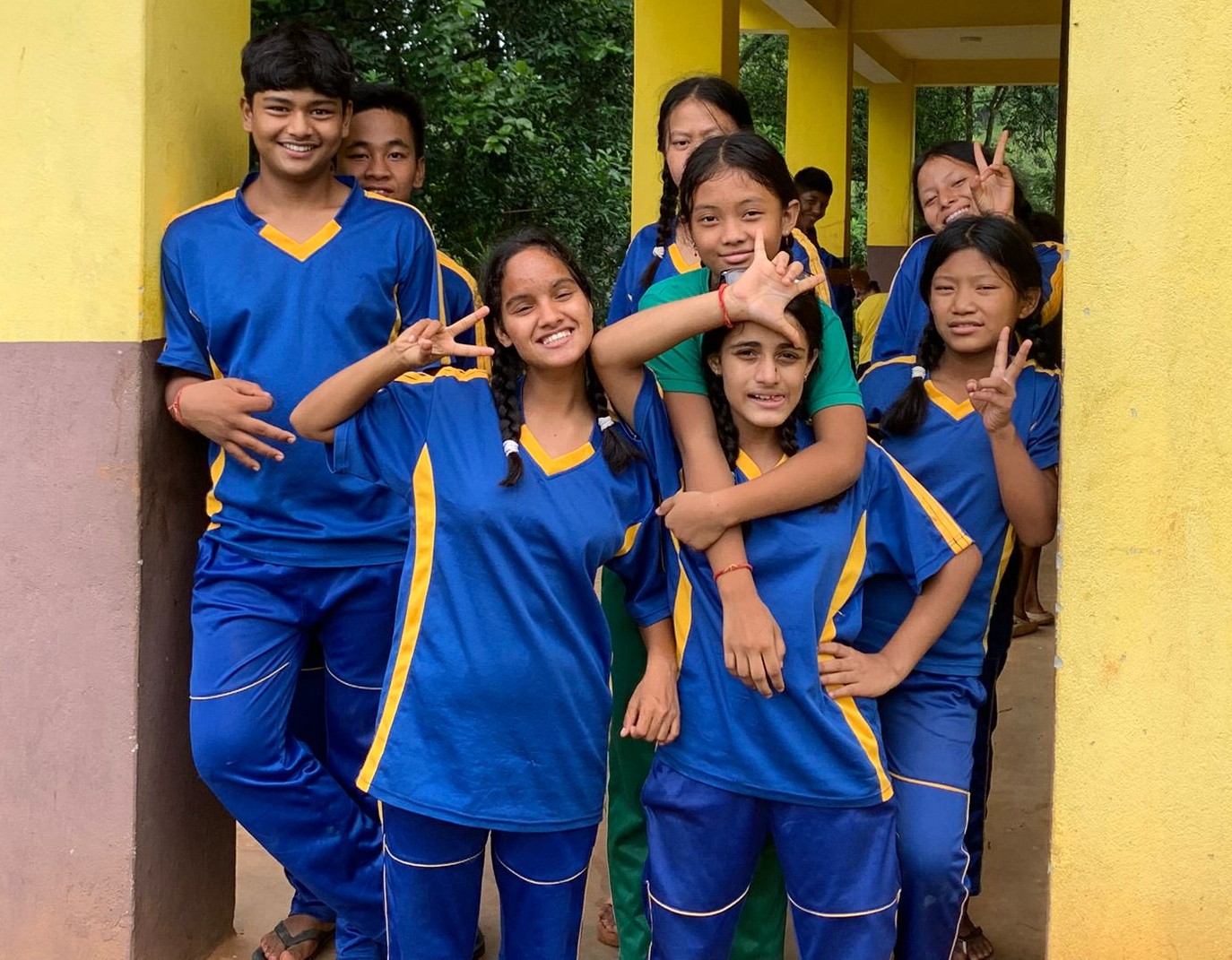
This experience taught me invaluable lessons about leadership, initiative, and teamwork. Leading a project like this required stepping up, motivating others, and balancing cultural sensitivity with project goals. It also sharpened my teaching and project management skills, showing me how to adapt to different learning styles and collaborate across cultural and linguistic boundaries.
Thanks to the Laidlaw Program, I was challenged to step outside of my comfort zone, not only adapting to a completely new cultural context but also learning how to take responsibility for a project that directly impacted a community.
This was a pilot project, but its impact reaches far beyond the seven weeks I spent in Nepal. It created strong connections with the community, laid the groundwork for future computer training initiatives, and demonstrated how a little help can have lasting effects. Above all, the project showed that with the right support and collaboration, underprivileged students in rural Nepal can have access to the opportunities of the digital age.

Acknowledgements
This project was only possible thanks to the extraordinary support of many individuals and teams, including the EWBN team, the IngOG+ team and the local community in Dhading. Their hard work, hospitality, and belief in the project ensured its success and gave me memories I will carry forever.
I also want to thank the Laidlaw Foundation for making it possible for me to do this project and give me all the tools and resources to succeed in helping the underprivileged communities in the world. I truly appreciate the effort of the EPFL Laidlaw Team in giving me these opportunities to grow as a leader and as a person.
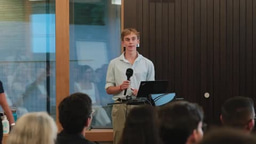
![From Pitches to Harmony: Developing a Computational Language for Music Theory [Report]](https://images.zapnito.com/cdn-cgi/image/metadata=copyright,format=auto,quality=95,width=256,height=256,fit=scale-down/https://images.zapnito.com/users/724860/documents/260902/c83eff24-ed04-473c-87ee-71c87a564434-med.jpg)
![From Pitches to Harmony: Developing a Computational Language for Music Theory [Poster]](https://images.zapnito.com/cdn-cgi/image/metadata=copyright,format=auto,quality=95,width=256,height=256,fit=scale-down/https://images.zapnito.com/users/724860/documents/260085/6e7a6669-b4f2-481d-b2a5-f0b577926797-med.jpg)
Please sign in
If you are a registered user on Laidlaw Scholars Network, please sign in